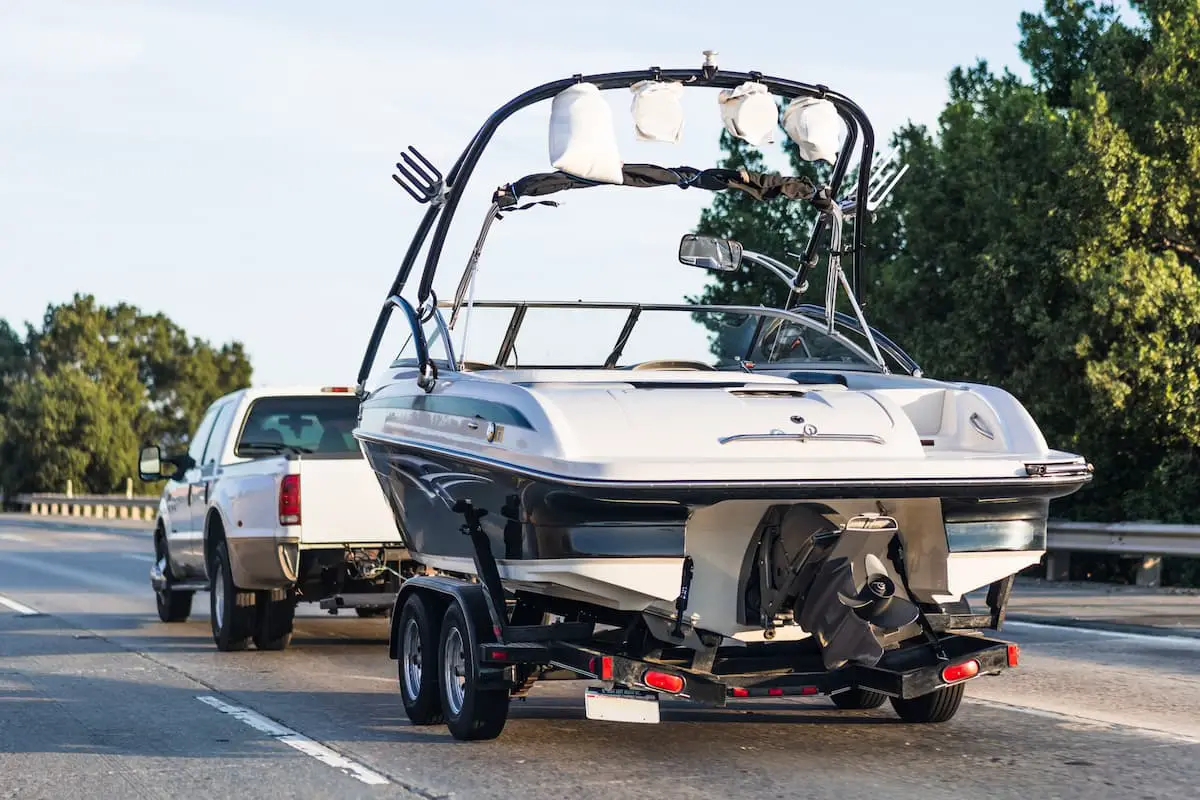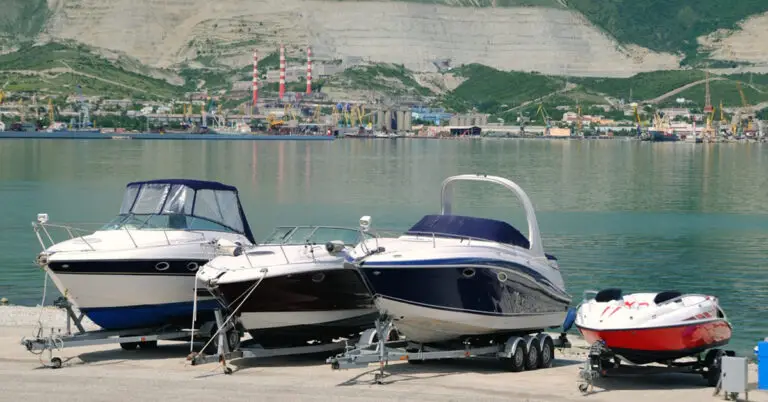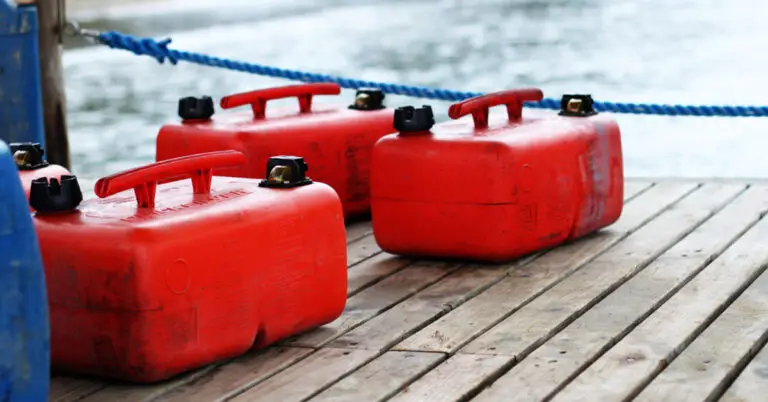Is Boating More Dangerous Than Driving? (Explained)
As a new or experienced boater, you’re probably excited to be out cruising peacefully or racing through the water. You may feel safe and secure in your boat, especially considering there are seemingly fewer hazards than when driving on the road. However, when you think about all the potential obstacles, you may wonder, is boating more dangerous than driving?
Boating is less dangerous than driving when looking at the fatalities and overall accident rates based on statistics. Car accidents occur more frequently than boating accidents and often lead to severe injuries or death. However, there are still many risks associated with boating and accidents.
This article will explain a few topics related to this question in great detail, including the rate of boat and car accidents and their consequences. Additionally, I’ll explain some differences between boating accidents and car accidents, plus some ways to stay safe on your boat.
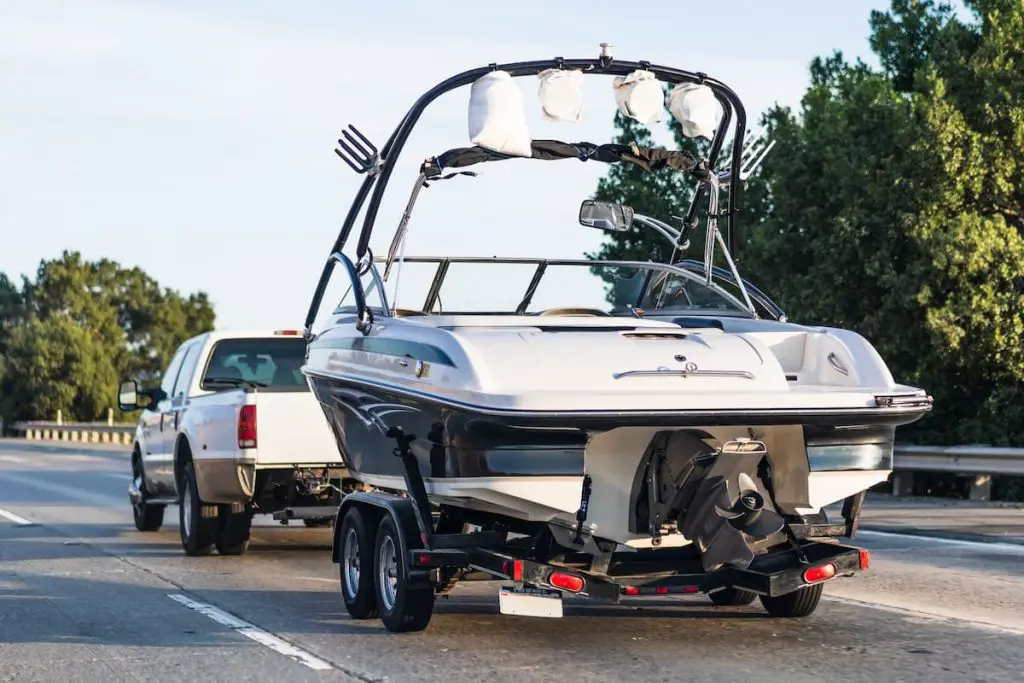
Boat Accidents (Is Boating Safe?)
You probably think of them as less common than driving accidents when you think about boat accidents. This is because there are much fewer boats than cars. If you go boating, you may come across ten or twenty boats on any given day. However, when driving, you’re typically traveling with hundreds of cars.
The lack of traffic makes boat accidents statistically much less likely. In 2020 the American Boating Association reported 5,265 accidents with 767 fatalities. The fatality rate is 6.5 deaths per 100,000 registered boats.
It’s also important to note that 75% of the fatalities in boat accidents result from drowning. Additionally, of those who drowned, 86% weren’t wearing a life jacket.
This means that many of the boating-related fatalities could have been easily prevented by wearing a life jacket.
Car Accidents (How Dangerous Are Driving Accidents?)
Car accidents, on the other hand, are much more common. Car accidents are prevalent with so many cars on the road daily and more closely packed together. In 2020 the National Highway Traffic Safety Administration reported 38,824 fatalities due to car accidents.
The NHTSA also reported over 5 million non-fatal crashes. These statistics show that car crashes are unfortunately widespread, even when not fatal. Over 45% of fatal car accidents were due to either speeding, alcohol use, or lack of a seatbelt.
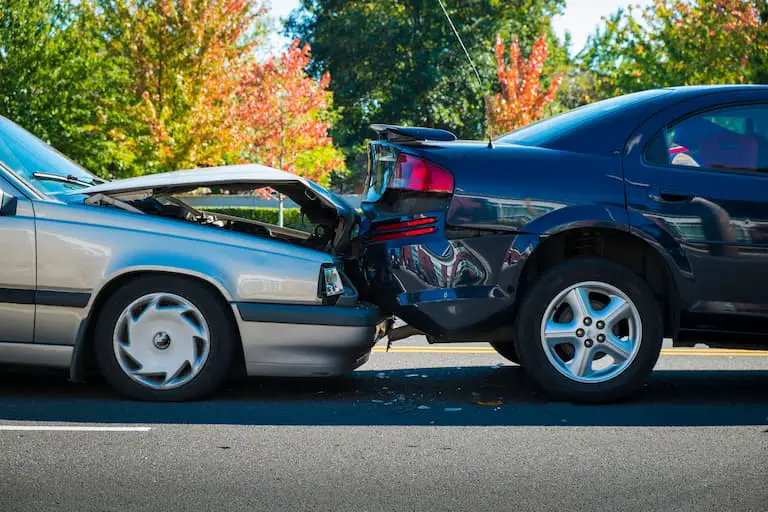
Differences in Safety Between Boats and Cars
Several differences contribute to the lower rate of boating accidents. The primary difference is that there are fewer boats than cars. This makes an accident between boats less likely.
Another difference is that boats usually go at a slower speed than cars. While boat speeds vary depending on the size and type of boat, most ships are typically moving between 10 and 35 miles (16 and 56 kilometers) per hour.
These speeds capture those of a boat cruising along or a boat moving at high speed, perhaps towing someone wakeboarding. Even at their highest speeds, boats are still consistently moving much slower than cars.
Cars tend to travel between 25 and 65 miles (40 and 105 kilometers) per hour, depending on if they’re in a residential area or on the highway. At these faster speeds, braking to avoid a crash is significantly more difficult, and you’re less likely to be successful in avoiding the other car.
It’s also important to remember that boats and cars are made very differently. Boats aren’t made to withstand heavy crashes. They aren’t manufactured to consider possible collisions in the same way cars are. Cars have more safety features such as seatbelts and airbags to prevent injuries during accidents, a necessary component given the likelihood of car crashes.
Things to Consider to Prevent Boating Hazards
While boating is safer than driving in terms of crash statistics, it’s essential to remember that boating can still be dangerous. While enjoying your boat outing, it’s crucial to remember several safety tips.
Wearing Lifejackets While Boating
A lifejacket may seem unnecessary if you’re a good swimmer and traveling in a boat at a low speed.
However, many situations can arise in which having a life jacket is a crucial component that could save your life. One example is if you were to go overboard after falling and hitting your head in the boat. If you’re unconscious, you’ll drown if you aren’t wearing your life jacket.
You may also get hit by another boat or be forced into the water for another reason. In either of these cases, even if you’re a good swimmer, having a lifejacket could save you if you’re in the water for a long time.
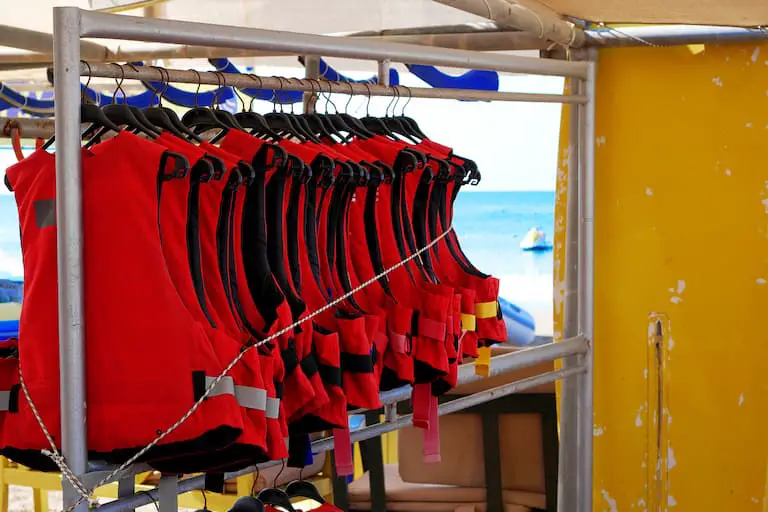
Weather Conditions When Boating
Another safety tip to keep in mind when boating is checking the conditions before going out. You may wake up to a bright and sunny day and think you’re in the clear. However, remember that weather conditions can change quickly.
It’s essential to check a trusted local weather source to determine how wind and weather conditions will continue throughout the day.
If you’re caught in a storm, you’ll run the increased risk of having an accident. High winds and large waves could make your boat capsize or flip over. Rain and fogginess can cause difficulty seeing, leading to an accident with another boat or object. Lightning also poses an extreme danger if you’re in the water, as it could hit you and seriously injure or kill you.
Paying Attention and Boating Experience
During your boat ride, the last crucial component of safety is driver attention and experience. If you’re an inexperienced boat driver, it isn’t a good idea to go out alone. Bring a more experienced driver with you until you feel comfortable going by yourself.
Additionally, it’s crucial to always be paying attention when you’re driving the boat. Not only should you be looking out for other boats, but also obstacles in the water. You need to be aware of buoys, swimmers, logs, or shallow ground while driving. All of these obstacles may be hazardous.
Is Boating More Dangerous Than Driving – Conclusion
In general, driving a boat is considered safer than driving a car. Statistics show fewer boating accidents than car accidents and fewer fatalities as well. This is because there are fewer boats than cars in use at any given time. Also, boats typically go slower than cars, helping you avoid more accidents.
While boats are safer than cars, this doesn’t mean that they’re void of hazards. Boaters should practice caution, including wearing a lifejacket, checking the weather conditions, and always paying attention when driving a boat.

